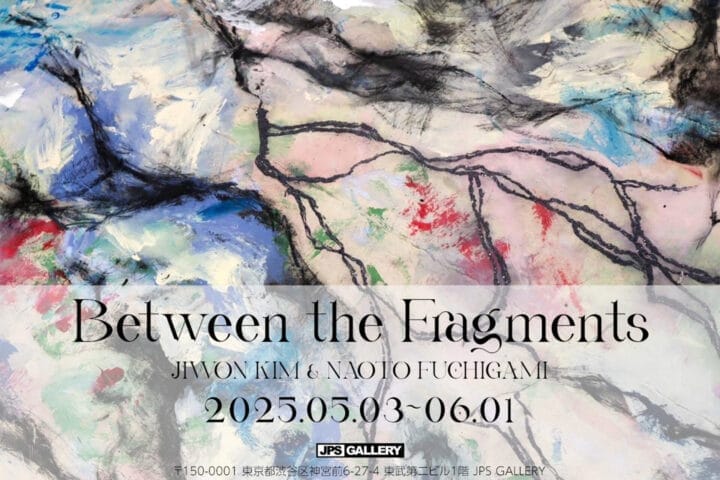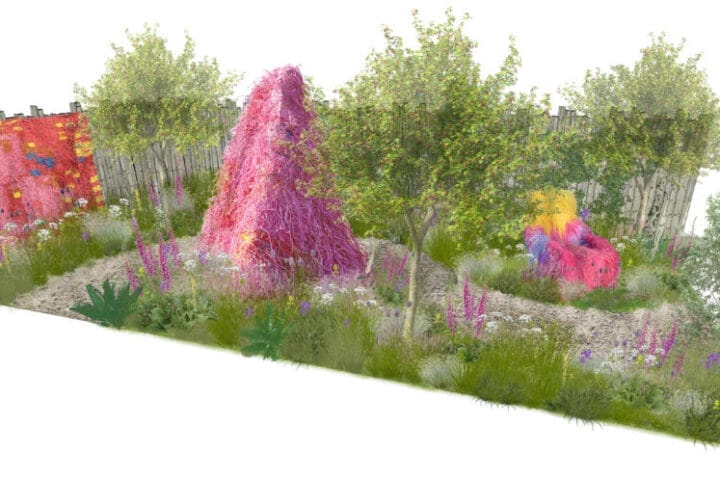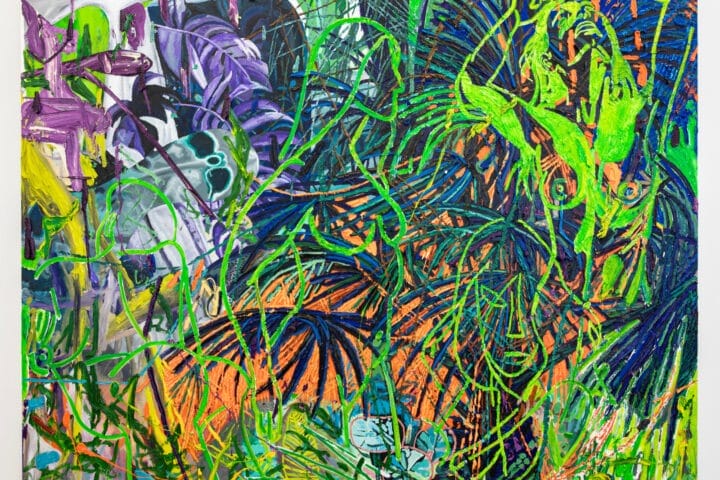Guest Curator Elvira Dyangani Ose, Director of The Showroom, London, proposes the project Contra la Raza [Against Race] at Matadero Madrid within the framework of PHotoESPAÑA21. This multidisciplinary initiative incorporates a video-based installation and live programme focusing on futuristic imaginaries expressed through poetics of the black experience that generate forms of global and egalitarian humanism.
Matadero’s dark, soaring Nave 0 will host a multimedia installation of Relic Traveller by Larry Achiampong, alongside a group screening of audiovisual works by artists including Ramone Anderson, Rubén H. Bermúdez, Sally Fenaux, Amartey Golding, Jérôme Havre, Julianknxx, Katia Kameli, Kiluanji Kia Henda, Grada Kilomba, Mónica de Miranda, Nástio Mosquito, Paulo Nazareth, Heidi Ramírez, Sara Sadik, Berni Searle, Cauleen Smith, Camille Turner and Belinda Zhawi.
Originally conceived for the 2020 edition of PHotoEspaña, Contra la Raza [Against Race] is a platform questioning how imagery in audiovisual formats communicates from a global Black and Pan-Africanist perspective. It is inspired by the eponymous book by British historian Paul Gilroy, Against Race: Imagining Political Culture Beyond the Color Line (2000), which addresses the fundamental role played by decolonial and antiracist movements in both the historical and contemporary fight for human rights. “No one talks about human identity,” he writes at the beginning of this century, appealing to our collective consciousness to advocate for the establishment of a new planetary humanism.
Gilroy challenges the concept of a fixed racial identity formation as the signifier of blackness globally. Through this framework, he critiques how the phenomenon of myopic race-thinking, often imposed by external agents, generates a dominating global narrative that reduces a complex constellation of interconnected histories to a linear plot line. Departing from Gilroy’s quest to dismantle racialising and marginalising politics, Contra la Raza [Against Race] proposes a poetics for an emerging egalitarianism as a catalyst for holistic cosmopolitan democracy.
![Larry Achiampong, Reliquary 2, 2020. Character designs and animations by Wumi Olakisibian © Larry Achiampong. Commissioned by John Hansard Gallery. Courtesy of The Artist and Copperfield, London. Contra la Raza [Against Race], installation view, 2019. Courtesy of Matadero Madrid and The Showroom, London. Photo: Lukasz Michalak](https://images.martincid.com/wp-content/uploads/2021/06/unnamed-2021-06-07T212403.813.jpg?strip=all&lossy=1&w=1170&ssl=1)
Larry Achiampong’s Relic Traveller series serves as both a physical platform and a speculative landscape for Contra la Raza [Against Race], centring multi-disciplinary approaches in telling decolonial narratives about identity, migration, technology, agency and imagination. Through two videos – the first in the series, Relic 0 (2017), and the most recent Reliquary 2 (2020) composed in direct response to the artist and his children’s enforced period of separation during the COVID-19 pandemic in 2020. These bookending videos are activated by paraphernalia, conceptual imagery illustrated by Wumi Olakisibian and fabrications from the second series of The Pan African Flags For The Relic Travellers’ Alliance, this installation sets the stage for an immersive call and response between colonial ghosts to future progeny. According to Achiampong, ‘The flags culminate icons moving towards unity and equilibrium. The work does not frame Pan Africanism as a utopian vision of the African continent, but one that considers aspects of responsibility in relation to the hidden tremors of history.’ With this reflection in mind, Contra la Raza [Against Race] seeks to provide a space to cross time zones, geographic borders and ancestral generations – a call to action in order to foster a communal understanding of what cross-culturalism means today.
It is with this ethos of collective representation and gathering that audiences can enter the womb of Nave 0, and be drawn towards the illuminated projection of a group screening space with intimate amphitheatre seating to spend time with and speculate. On Tuesdays – Thursdays a four-hour screening will play throughout the duration of the opening hours, whilst on weekends this programme will loop twice, creating more possibilities for viewing, listening and making connections. This installation brings together over a dozen artists from across the globe who all explore ideas of identity politics from a geopoetic perspective – from the individual to the collective, the domestic to the spectacular.
During the last week of October there will be a live programme of screenings, talks, performances and live music; a video presentation hosted by Videobrasil; and a film series in collaboration with Cineteca Madrid and the Locarno Film Festival. Amongst the unique screenings events is Taxidermy of the Future curated by Paula Nascimento and Bruno Leitão which brings together works by three multimedia artists, Kiluanji Kia Henda, Grada Kilomba and Mónica de Miranda that dissect persistent spectres in both European and African societies, from Greco-Latin mythology to the postcolonial era. Blurring the lines between history and fiction, memory and fantasy, these works are a living testimony of the narrative vitality of contemporary expression.
Curated in collaboration with The Showroom, London, Contra la Raza [Against Race] turns to the organisation’s commitment to collaboration, togetherness and bringing unconventional aesthetics to a broader audience. With this project, The Showroom, in collaboration with Matadero, maintains its intention to foster a temporary, organic and global community through a multidisciplinary platform that amplifies narratives of blackness – historically and today – as a radical story, plural structural method and future vision.
Contra la Raza [Against Race] is presented by The Showroom, London in collaboration with Matadero Madrid and partners Cineteca Madrid, Videobrasil and Taxidermy of The Future.
Contra la Raza [Against Race] is curated in collaboration with The Showroom, London, with Co-Curator Katherine Finerty, and supported by Raúl Muñoz de la Vega.
—
Elvira Dyangani Ose quote: “If one connects the stories voiced in this project, it is the multiple and complex layers of humanity that they conjure, their desire to rescue silenced or forgotten stories from the black experience, and the poetics that hide in everyday life surrounding these experiences. There is an imminent connection in this reflection of the habitual, of the daily common task, of what is understood as immemorial, that expresses through aesthetics an opportunity to expose the enormous multiplicity of its practices, as well as the limits that it is so often framed in a reviled one-sidedness. The different social, political and cultural realities of not-so-distant geographical environments – in the African continent and its Diasporas – alongside the personal responses of filmmakers and artists to these contexts, invite the audience to immerse themselves in a rhizomatic experience.”
![Larry Achiampong, Relic Traveller series, 2017-2021 Na?stio Mosquito, 3 Continents video, 2010. Contra la Raza [Against Race], installation view, 2019. Courtesy of Matadero Madrid and The Showroom, London. Photo by Lukasz Michalak](https://images.martincid.com/wp-content/uploads/2021/06/unnamed-2021-06-07T212307.907.jpg?strip=all&lossy=1&ssl=1)









